Jay Bolin was walking along a New York City street one day more than a half-century ago, when a police officer stopped him.
The officer had identified Bolin as the instructor who had taught him how to fire a rifle in the U.S. Army.
Back in the 1940s, Bolin could have meet hundreds of men like that, because he taught firearms to so many young soldiers in so many places.
On Tuesday evening, as he shared some photos of his recent Honor Flight, Bolin listed those states where he conducted rifle training: New York. Virginia. California. Pennsylvania. New Mexico. Nevada. North Carolina. Missouri. New Jersey. West Virginia. Louisiana. Georgia. Texas. Alabama.
Bolin, who has lived in Vinton since 1985, grew up in Mascot, Tennessee, where he played on a football team that competed against teams from several states. He then continued his football career (and also played college baseball) at Davidson College in North Carolina, following his brother, Bill. He explains with a laugh that he, William James Bolin, is called "Jay," while his brother, Herbert, was called "Bill."
But football, although he was a team captain, was always Bolin's second-favorite activity in high school and college. ROTC came first.
At Davidson Bolin continued serving in the ROTC and joined The Scabbard and Blade, a military honor society. From the ROTC, he entered the Army as a Second Lieutenant and soon began his 10-year career as a rifle instructor for the 97th Infantry.
At about the same time, Bolin proposed to his girlfriend, Susan; the couple sent their engagement announcement to the newspaper. It appeared in print on a date every American knows well: Dec. 7, 1941. Jay and Susan Bolin celebrated their 69th anniversary Feb. 7; they now reside at Winsor Manor in Vinton.
Bolin entered the ROTC expecting that his first post-college job would be in the Army; the beginning of World War II merely added more importance, and perhaps more years, to that commitment.
Bolin spent the war years and the next several years training soldiers, and raising his young family. His daughter, Cindy, was born first.
Bolin said he enjoyed his job as a marksmanship instructor. He said that some of his trainees did poorly at first. Only one was ever injured: A guy who wanted to get out of the Army shot himself in the foot, Bolin recalls.
Ten years passed. Bolin was given a chance to retire from the Army. He did.
While attending a Tennessee football game, Bolin met the president of American Zinc, who offered him a job in a zinc mine.
"The mine was good to me," he said.
Still, at times, he said, he regretted not getting the chance to coach football, like his brother, Bill, had done for several years.
Bolin's father was a doctor; he had also considered following his father's footsteps.
Later, Bolin became a salesman for American Zinc, selling zinc oxide that was used in a variety of ways, as well as limestome. Sometimes the limestone was sold to farmers for just 25 cents a truckload. "We just wanted to get rid of it," Bolin recalls.
Cindy grew up and decided to attend Iowa State, because of its Home Ec program. There she met her future husband Mike Elwick, of Vinton. After retiring, Jay and Susan Bolin moved to Vinton to live near Cindy.
Honor Flight Experience
Bolin had spent time at Washington, D.C. years ago, and was interested in seeing the changes there when he went on the most recent Eastern Iowa Honor Flight on April 26.
When asked to name his favorite part of the trip, Bolin replied, "I enjoyed the whole doggone thing."
Bolin urges other veterans to go on an Honor Flight.
"Tell 'em to go, especially if they have never been to Washington, D.C." he said.
He also praised the Honor Flight staff and the flight crew for making sure the veterans had whatever they needed.
This May marks the 70th anniversary of Bolin's graduation from Davidson and its ROTC program, and the beginning of his full-time military career.
Below is the 1941 Davidson Senior Class poem, according to the 1941 school annual, "Quips and Cranks:" Although it was written a few months before the attack on Pearl Harbor drew America into World War II, the poem seems to contain a prayer for soldiers.
Click HERE to see the entire 1941 annual on-line.
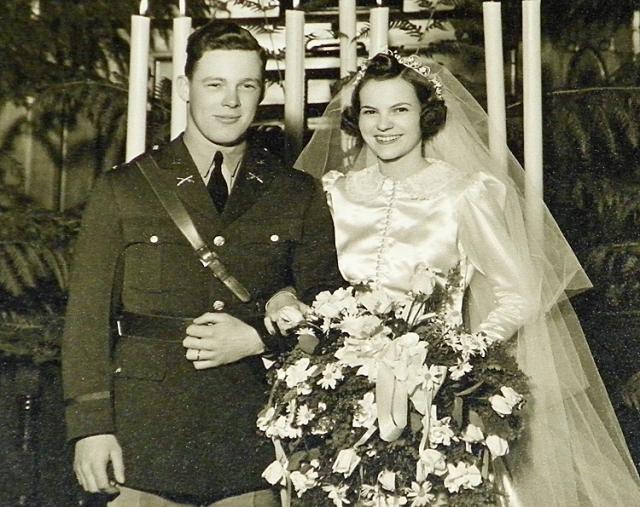
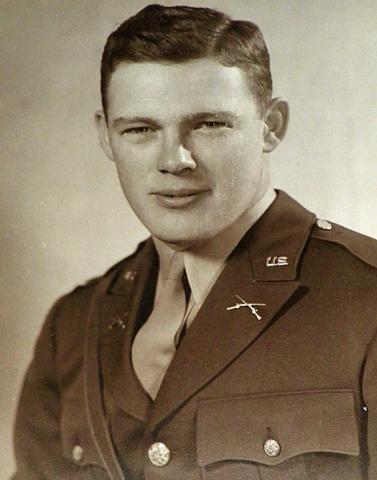
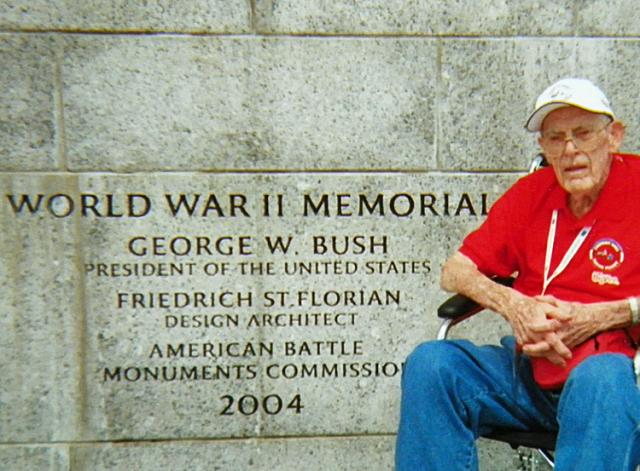
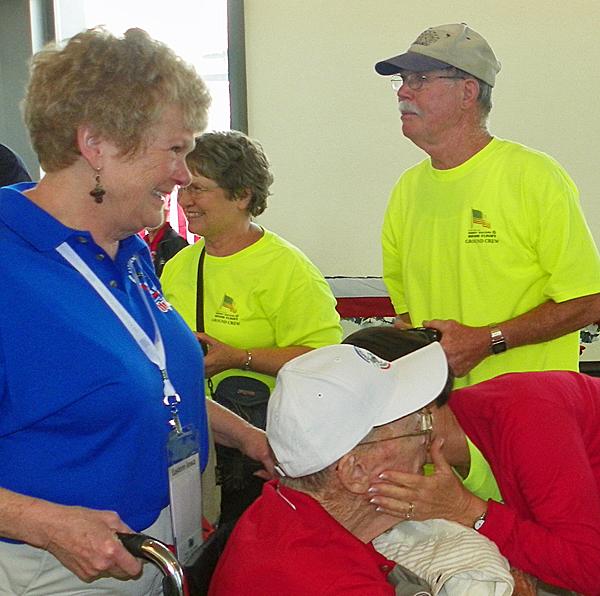
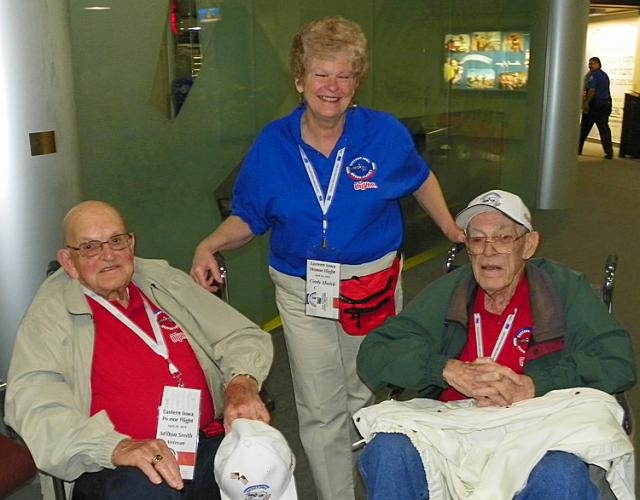
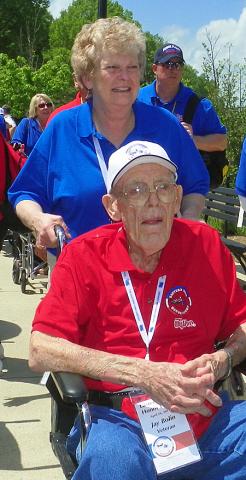
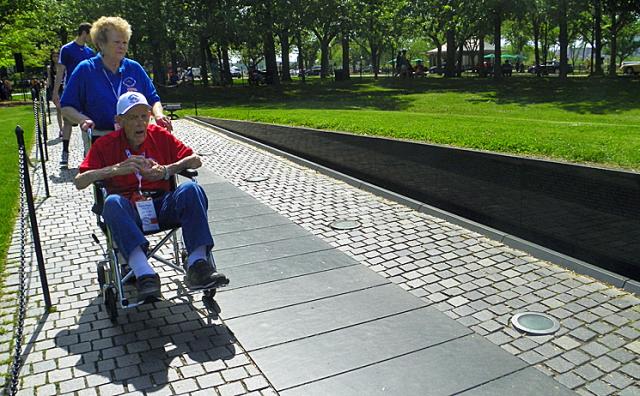
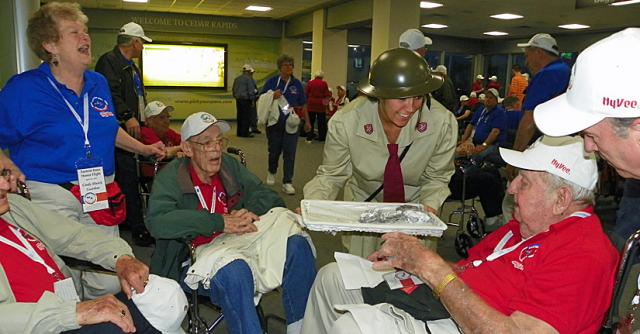
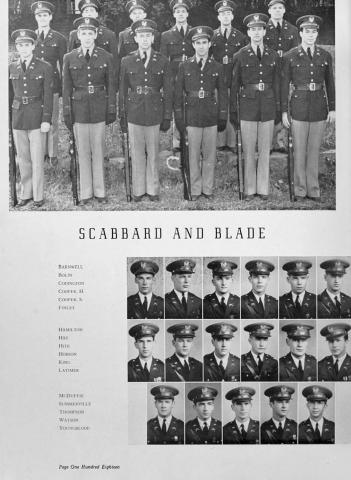
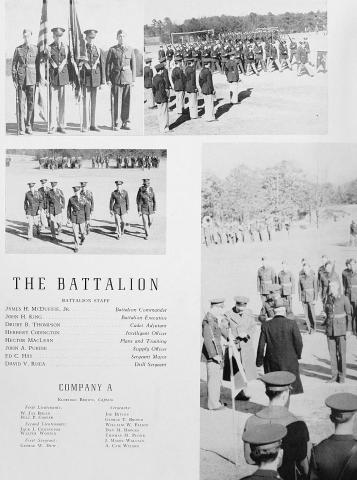
Comments
Submit a CommentPlease refresh the page to leave Comment.
Still seeing this message? Press Ctrl + F5 to do a "Hard Refresh".